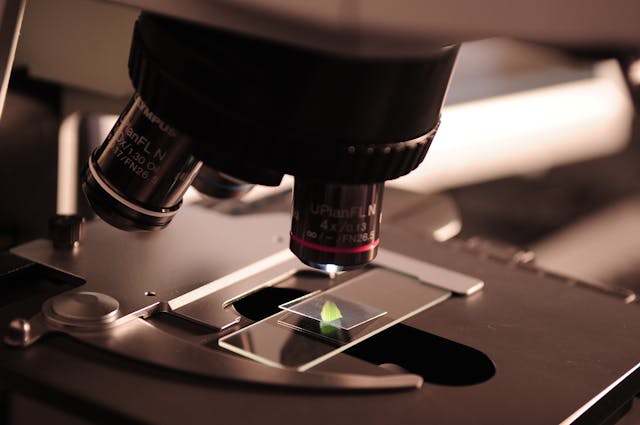The Ethics of Science: Balancing Innovation with Responsibility
Science has made remarkable strides in recent decades, leading to groundbreaking discoveries and technological advancements that have transformed every aspect of our lives. From medical breakthroughs to space exploration and artificial intelligence, science continues to push the boundaries of what is possible. However, with great innovation comes great responsibility. The ethics of science is a crucial discussion, as researchers and innovators must navigate the fine line between progress and the potential consequences of their discoveries. In this article, we explore the importance of ethics in science and how society can balance innovation with responsibility.

The Role of Ethics in Scientific Progress
Ethics in science refers to the moral principles that guide research, experimentation, and the application of scientific knowledge. It ensures that advancements serve humanity and do not cause harm, whether intentionally or unintentionally. Ethical considerations include issues like the safety of research subjects, the environmental impact of new technologies, and the fair distribution of scientific benefits.
While science is often driven by the pursuit of knowledge, it is essential that researchers ask important ethical questions along the way. Should we pursue certain experiments? Who will benefit from a new technology, and who might be harmed by it? Is the potential impact of a discovery worth the risks? These questions help ensure that scientific advancements are used in ways that are fair, just, and beneficial for society.
Innovation Without Accountability: The Risks
Without a strong ethical framework, innovation can lead to unintended negative consequences. There are several key risks associated with scientific progress when ethics are overlooked:
1. Harm to Individuals and Communities
Scientific experiments, particularly those involving humans or animals, must adhere to strict ethical guidelines to prevent harm. In the past, lack of oversight has led to unethical experiments, such as the Tuskegee Syphilis Study in the United States or the use of radiation on unsuspecting patients. These actions, driven by the desire to advance knowledge, caused irreparable harm and violation of trust.
Today, ethical oversight in research helps prevent similar abuses. Institutional Review Boards (IRBs) and ethical guidelines ensure that experiments are conducted with consent, safety, and dignity. However, as new technologies emerge, there is always a risk that scientific curiosity may overshadow the need for ethical consideration, especially when certain innovations are pursued in secret or without sufficient public scrutiny.
2. Environmental Impact
Many scientific advancements, particularly in fields like biotechnology, chemistry, and engineering, have significant environmental consequences. For instance, the creation of synthetic chemicals, while leading to valuable products, has also resulted in pollution, habitat destruction, and resource depletion. Genetically modified organisms (GMOs) have raised concerns about biodiversity and the unintended consequences of introducing new species into ecosystems.
The ethics of science calls for a balance between innovation and environmental sustainability. Researchers must consider the long-term effects of their work on ecosystems and the planet. Ethical guidelines should push for technologies that minimize harm and promote sustainability.
3. Inequality and Access to Benefits
Scientific discoveries have the potential to improve lives, but they can also deepen existing inequalities. Advances in medicine, for example, might save lives but may only be accessible to wealthy nations or individuals. This discrepancy can create a divide where only certain groups benefit from new technologies, while others are left behind.
The ethics of science urges scientists and policymakers to ensure that new discoveries are accessible to all. Fair distribution of scientific benefits is an important part of making sure innovation improves society as a whole, rather than exacerbating inequalities.
Ethical Considerations in Modern Science
As technology continues to advance, new ethical dilemmas are emerging that require careful thought and consideration. Some of the most pressing ethical concerns in modern science include:
1. Artificial Intelligence and Machine Learning
AI and machine learning technologies are revolutionizing industries, from healthcare to finance to transportation. However, these technologies also raise serious ethical concerns about privacy, bias, and job displacement. The algorithms that drive AI systems can perpetuate existing biases, leading to discrimination in areas like hiring, criminal justice, and healthcare.
There is also the question of accountability. If an autonomous vehicle causes an accident or an AI makes a decision that negatively impacts individuals, who is responsible? Striking the right balance between innovation in AI and ethical guidelines to prevent harm is crucial to ensure that these technologies serve the public good.
2. Gene Editing and Biotechnology
Gene-editing technologies like CRISPR have the potential to cure genetic diseases and eliminate hereditary conditions. However, they also raise ethical concerns about “designer babies,” genetic modification for non-medical reasons, and unintended genetic consequences. The ability to alter the DNA of living organisms, including humans, requires careful consideration of long-term effects, the possibility of misuse, and the moral implications of altering the genetic code.
The ethical conversation surrounding gene editing also involves consent. If a gene-editing procedure is conducted on an embryo, the individual cannot give consent, raising complex ethical questions about the rights of the unborn.
3. Climate Engineering
As the world faces the growing threat of climate change, some scientists have proposed geoengineering solutions, such as injecting aerosols into the atmosphere to cool the planet or manipulating the ocean’s chemistry to absorb more carbon dioxide. While these methods may offer temporary fixes, they also come with unknown risks. The ethics of climate engineering involves questions about the unintended consequences of such actions, the governance of geoengineering, and the potential for environmental harm.
The Need for Ethical Frameworks in Science
Given the complexities of modern science and technology, it is clear that ethical frameworks are essential. Scientists, governments, and industries must work together to establish and adhere to ethical standards that prioritize human rights, environmental sustainability, and social justice.
In many countries, ethical guidelines and regulations have been put in place to govern research and innovation. Institutions like ethics committees and regulatory bodies help ensure that research is conducted responsibly and that innovations are used for the public good. However, as new technologies emerge, there is an ongoing need for updates to ethical standards and a commitment to ethical review.

Scientists must also engage with the public, policymakers, and ethicists to ensure that their work reflects the values and concerns of society. Public discourse about the ethical implications of new technologies should be encouraged, allowing people to have a voice in the decisions that shape their future.
Conclusion: A Balanced Approach to Progress
The ethics of science is not a barrier to progress but a necessary safeguard to ensure that innovation benefits humanity and the planet. As we continue to make groundbreaking advancements in fields like artificial intelligence, biotechnology, and environmental science, it is essential that we balance our thirst for knowledge with a sense of responsibility. By asking ethical questions, considering long-term impacts, and prioritizing the common good, science can continue to drive progress while respecting moral boundaries.
In the end, science should not only advance knowledge but also reflect the values of fairness, justice, and sustainability. By grounding innovation in ethics, we can create a future where science serves humanity in ways that are both groundbreaking and responsible.












